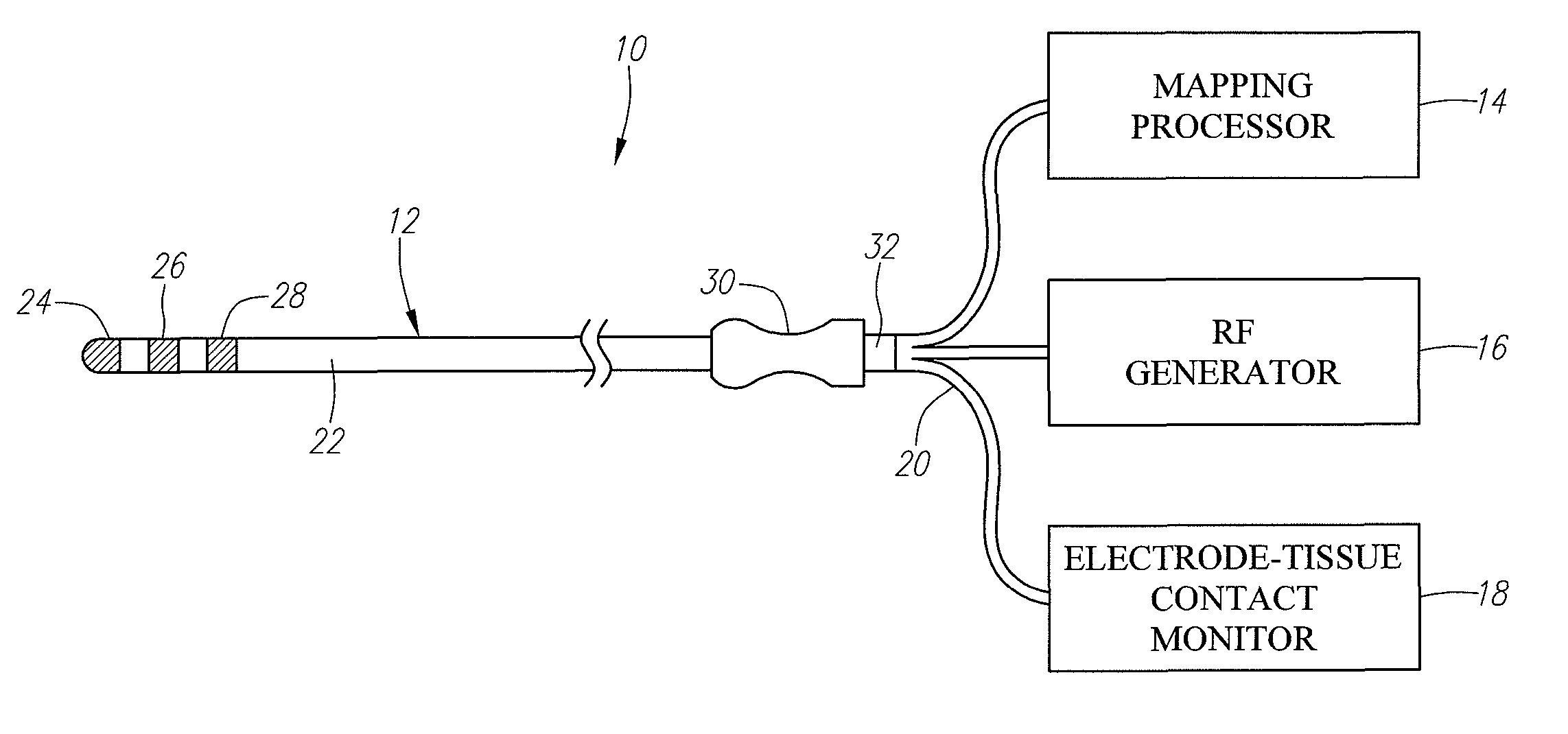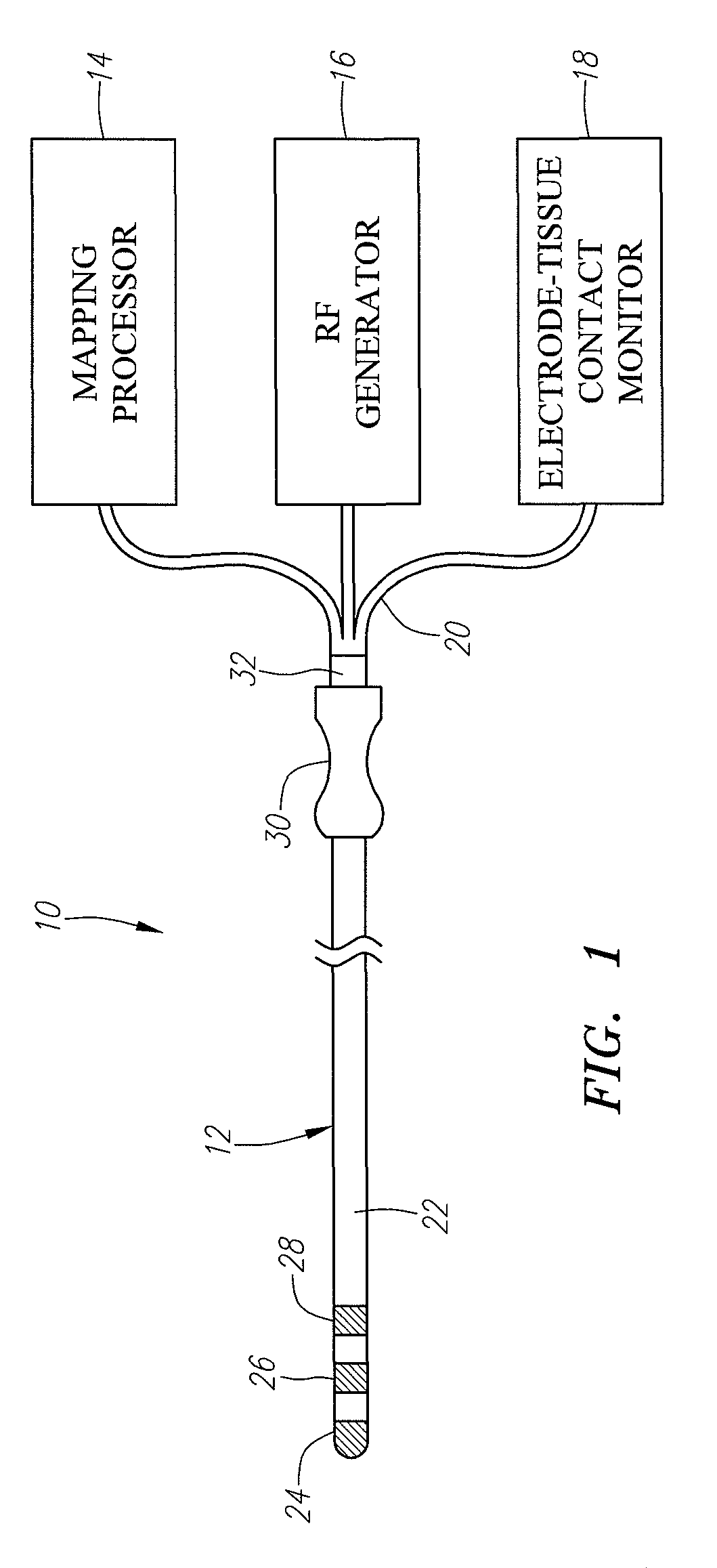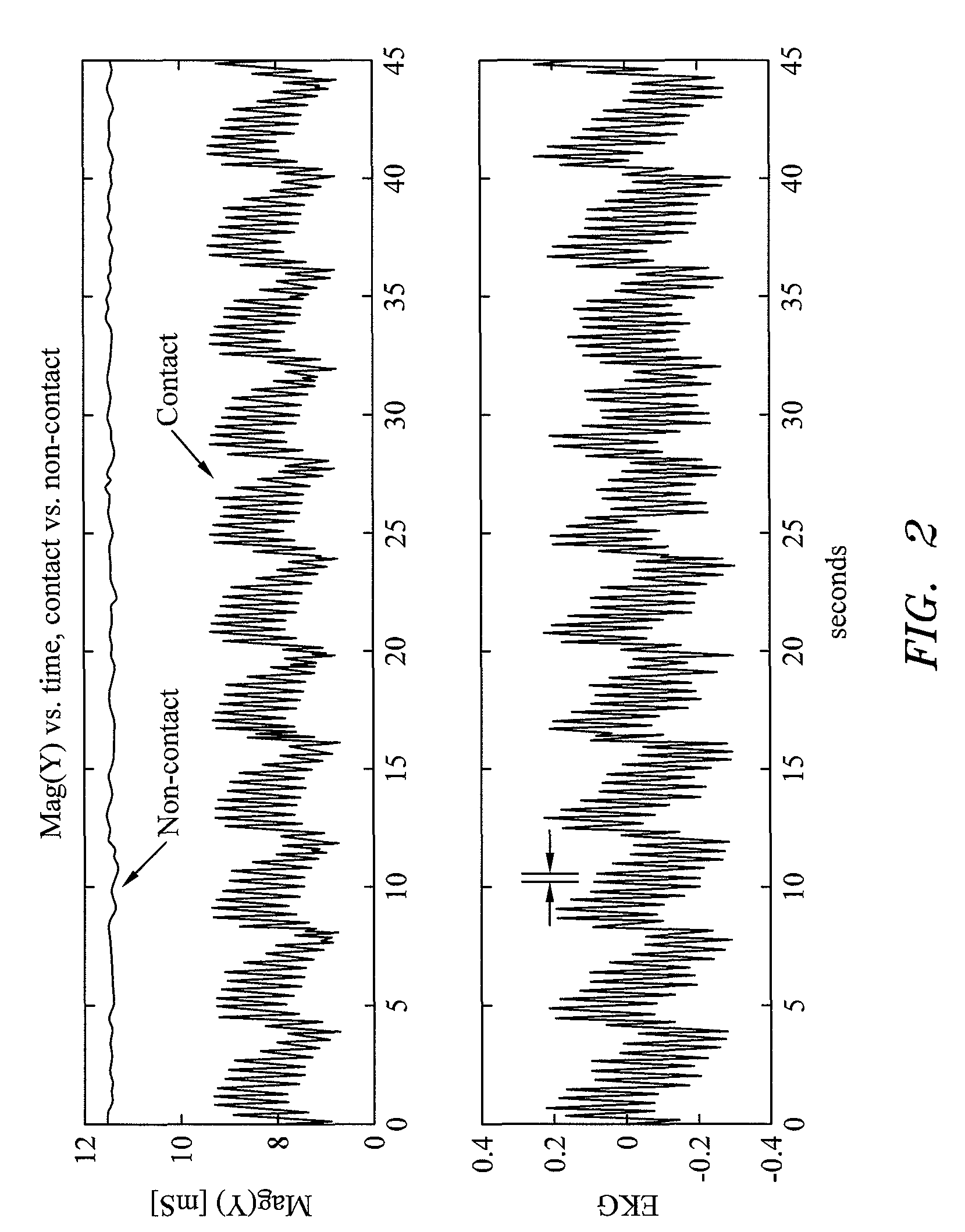System and method for determining electrode-tissue contact based on amplitude modulation of sensed signal
a technology of amplitude modulation and sensed signal, applied in the field of medical probes or instruments, can solve the problems of insufficient the firm effective the inability to accurately determine the extent of the contact between the electrode and the tissue,
- Summary
- Abstract
- Description
- Claims
- Application Information
AI Technical Summary
Problems solved by technology
Method used
Image
Examples
Embodiment Construction
[0023]Referring to FIG. 1, an exemplary electrophysiology (EP) system 10 constructed in accordance with the present inventions is shown. The EP system 10 is particularly suited for mapping a heart by identifying a target tissue site or sites, e.g., aberrant conductive pathways, and for treating the heart by ablating the target tissue site(s). Nevertheless, it should be noted that the concepts disclosed herein may be applied to any process requiring the introduction of a medical probe within a patient's body to diagnose or treat other internal anatomical structures, e.g., the prostrate, brain, gall bladder, uterus, esophagus and other regions in the body.
[0024]The EP system 10 generally comprises a mapping / ablation catheter 12, and a mapping processor 14, a radio frequency (RF) generator 16, and an electrode-tissue contact monitor 18 functionally coupled to the mapping / ablation catheter 12 via a cable assembly 20. The mapping / ablation catheter 12 may optionally be mechanically manipu...
PUM
 Login to View More
Login to View More Abstract
Description
Claims
Application Information
 Login to View More
Login to View More - R&D
- Intellectual Property
- Life Sciences
- Materials
- Tech Scout
- Unparalleled Data Quality
- Higher Quality Content
- 60% Fewer Hallucinations
Browse by: Latest US Patents, China's latest patents, Technical Efficacy Thesaurus, Application Domain, Technology Topic, Popular Technical Reports.
© 2025 PatSnap. All rights reserved.Legal|Privacy policy|Modern Slavery Act Transparency Statement|Sitemap|About US| Contact US: help@patsnap.com



